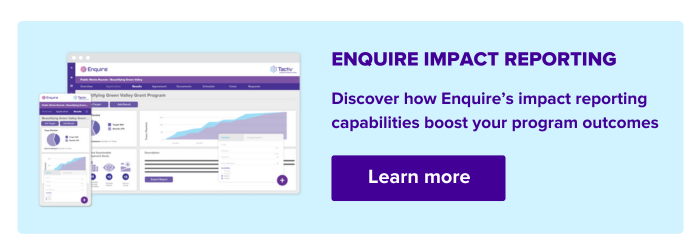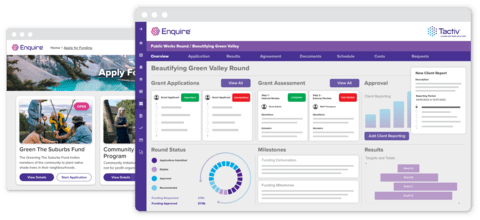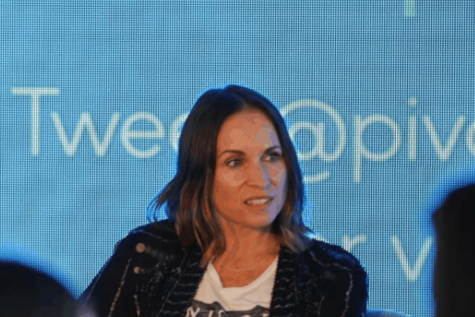What is impact reporting?
While impact reporting isn’t an entirely new concept, it has gained a significant amount of traction for all types of businesses today. Whether you’re involved in a non-profit, a foundation or offer awards and scholarships, your organisation focuses on making positive change in a number of ways. The world becomes more concerned about business ethics, sustainability and transparency. Therefore impact reporting could be an effective tool to help organisations like yours gauge and relay the impact and outcomes of their efforts.
What is an impact report?

An impact report offers businesses a tangible way to communicate the benefits of their efforts to different stakeholders. These can be investors, consumers or people in the community. Impact reports show what activities and changes a company has made to make a positive impact, whether that’s through sustainability, social justice or community outreach.
So what’s the most notable difference between impact reporting and other common annual reports? An impact report doesn’t simply measure input and output. Instead, impact reports show how the outcomes have produced meaningful change outside of the organisation.
There are tools to measure your data and help create impact reports. Enquire Impact Reporting software is an example. With Enquire you can set, track and measure indicators against impact goals and frameworks, so you capture and communicate data across your entire funding portfolio. Consequently, you are able to automate impact reporting and analysis for your grant, scholarship and CSR programs.
Impact reporting process best practices
Impact reports are used for a variety of businesses and purposes, but regardless of their use, there are key points that all reports should touch on. Creating a quality impact report process includes:
- Performance Evaluation Criteria: Establish the problem or challenge to solve with specific criteria that are used to measure progress from the start. Enquire supports narrative, quantitative and qualitative options including scoring.
- Program KPIs: Enquire links outcomes to KPIs within a portfolio-program-project hierarchy so that you can see performance across your portfolio and by project.
- Track progress: Monitoring progress requires the ability to capture data in a disciplined and standardised way. Enquire provides a range of customisations and automations that enable you to track and measure progress accurately, timely and clearly.
- Extend impact: A quality impact reporting process builds trust in the program. Enquire’s best practice reporting framework enables program managers. This way, it’s also easy to engage investors through reporting on performance, outputs, outcomes and financials and build trust.
Additional impact reporting tips
In addition to covering these areas within your report, it’s also important to leave out complicated jargon that might confuse those outside of your organisation. This helps readers better understand the information you’re reporting on. It also makes it easier to see a link between your efforts and your outcomes. Lastly, you can make use of testimonials in your report. If relevant to your organisation, positive quotes and statements from beneficiaries help build your story and increase credibility with the reader.
The importance of measuring impact
It’s important for organisation leaders to have clear and accurate insights into what is and is not working for their business. This allows management to make necessary changes, shift strategies and track efforts. This type of information is increasingly useful for stakeholders, funders, commissioners and investors as well. That’s because, in order for organisations to continue seeing success and influencing positive change, they will need to continue raising funding, receiving donations and attracting high-quality applicants. Impact reporting allows these businesses to show evidence that their efforts have produced positive outcomes and gives stakeholders reasons why they should continue supporting their operations. Other important reasons to report your impact include:
- Measuring your impact against your organisation’s original goals for continuous improvement.
- Building trust and credibility with current and potential beneficiaries, supporters and donors.
- Implementing transparent practices to demonstrate compliance with regulations to stakeholders and the public.
- Building organisational culture that encourages people to work toward common social impact visions.
- Celebrating milestones and successes with staff and volunteers.
- Sharing your findings and takeaways with similar organisations to create a community.
ESG and SDG reporting

Social impact reporting has become increasingly important for government sectors, not-for-profits and philanthropic organisations to be in compliance with current and future regulations. Also, corporations need to track and report on their social responsibility and social impact for shareholders interested in their sustainability. And, the general public expects to know how products or services are produced and the impact they have on society and the environment.
Environmental, Social and Governance (ESG) reporting provides data about a company’s performance in these three areas. The analysis gives investors the opportunity to decide whether partnering with a company would pose a financial threat based on their environment, social or governmental operations.
On the other hand, Sustainable Development Goals (SDG) are set targets by the United Nations. According to the World Health Organisation (WHO), the UN sustainable development goals aim to “free the world from poverty, hunger and disease.” Actively measuring and reporting your organisation’s SDG helps incorporate SDG into existing business processes. This opens up new opportunities and can secure existing partnerships by proactively showing that the company is working towards positive outcomes.
Impact investing
Impact investing is a strategy used to generate financial gain while simultaneously contributing to social or environmental impact. According to Investopedia, investors who follow impact investing strategies heavily consider a company’s commitment to social responsibility and bettering society as a whole. As more investors take this approach, it becomes more and more critical for organisations that need support and funding to provide impact reports for key stakeholders.
Measuring your impact with Enquire
Enquire is a lifecycle management software solution designed to make reporting and communicating social impact outcomes easier. Developed for Australian and New Zealand government agencies, not-for-profits, corporates and foundations, Enquire helps these organisations to:
- Establish targets and track impact goals.
- Deliver visibility and evidence about outcomes to all stakeholders.
- Set progress reporting dates and automated alerts.
- Share feedback and learnings.
- Communicate results and personalise reporting.
Are you ready to track, manage and report your organisation’s social impact? Learn more about Enquire Impact Reporting Software here.







